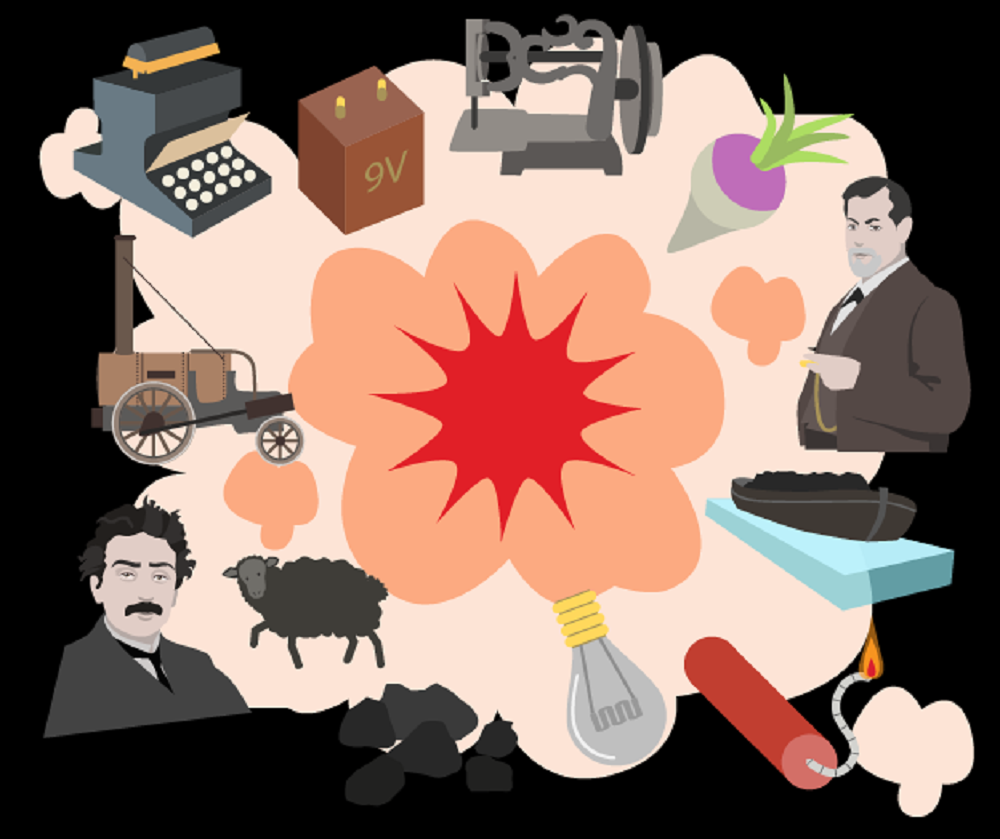Introduction to the evolution of technology
Technology has come a long way since the Industrial Revolution, shaping and reshaping our lives in ways we could never have imagined. From the invention of steam-powered machines to the rise of computers and the internet, technology has revolutionized the way we live, work, and interact with the world around us. In this article, I will take you on a journey through the evolution of technology, from its humble beginnings to the digital age we find ourselves in today.
The Industrial Revolution: A game-changer in technology
The Industrial Revolution, which took place from the late 18th to the early 19th century, was a game-changer in the history of technology. It marked a shift from agrarian-based economies to industrialized societies powered by machinery. One of the most significant advancements during this period was the development of the steam engine by James Watt. The steam engine allowed for the mechanization of various industries, such as textile production and mining, leading to increased productivity and economic growth.

The impact of the Industrial Revolution on society and the economy
The impact of the Industrial Revolution was profound, transforming not only the way goods were produced but also the structure of society itself. As factories sprang up and cities grew, there was a mass migration of people from rural areas to urban centers in search of employment. This urbanization led to the rise of a new social class – the working class – who worked long hours in often dangerous and deplorable conditions. However, it also led to the growth of the middle class, as new opportunities for entrepreneurship and innovation arose.
Advancements in technology during the 20th century
The 20th century saw rapid advancements in technology that further propelled human progress. The invention of the telephone by Alexander Graham Bell revolutionized communication, making it possible for people to connect over long distances. The development of the automobile by Henry Ford transformed transportation, making it more accessible and affordable for the masses. The discovery of electricity and the subsequent invention of various electrical appliances brought convenience and comfort into households worldwide.
The Digital Revolution: How technology changed the world
The Digital Revolution, also known as the Third Industrial Revolution, marked the transition from analog and mechanical technology to digital technology. It began in the mid-20th century with the invention of the computer and has since transformed every aspect of our lives. Computers have become smaller, faster, and more powerful, enabling us to process vast amounts of information and perform complex tasks with ease. The internet, a global network of interconnected computers, has revolutionized communication, commerce, and access to information.
The rise of computers and the internet
The rise of computers and the internet has had a profound impact on society, transforming the way we work, learn, and connect with others. Computers have become an integral part of our daily lives, from personal computers and laptops to smartphones and tablets. The internet has made the world more interconnected than ever before, allowing us to communicate with people from different parts of the globe, access information instantaneously, and participate in online communities.
The impact of the Digital Revolution on various industries
The Digital Revolution has disrupted and transformed various industries, revolutionizing the way we do business. The advent of e-commerce has revolutionized the retail industry, enabling consumers to shop from the comfort of their homes and opening up new markets for businesses. The entertainment industry has also been revolutionized by digital technology, with the rise of streaming platforms and digital media. The healthcare industry has benefited from advancements in digital technology, with the development of medical imaging, telemedicine, and electronic health records.
The future of technology: Trends to watch out for
As we look towards the future, there are several exciting trends in technology that we should watch out for. Artificial intelligence (AI) and machine learning are poised to revolutionize various industries, from healthcare and finance to transportation and manufacturing. The Internet of Things (IoT) will connect everyday objects to the internet, creating a network of smart devices that can communicate and interact with each other. Virtual reality (VR) and augmented reality (AR) will transform the way we experience and interact with the world around us.

The ethical implications of technological advancements
While technological advancements have brought about numerous benefits, they also raise ethical concerns that we must address. The rapid advancement of AI, for example, raises questions about the impact on employment and the potential for bias in decision-making algorithms. The collection and use of personal data in the digital age raise concerns about privacy and data security. As technology continues to evolve, it is crucial that we have robust ethical frameworks in place to ensure that it is used for the greater good of humanity.


